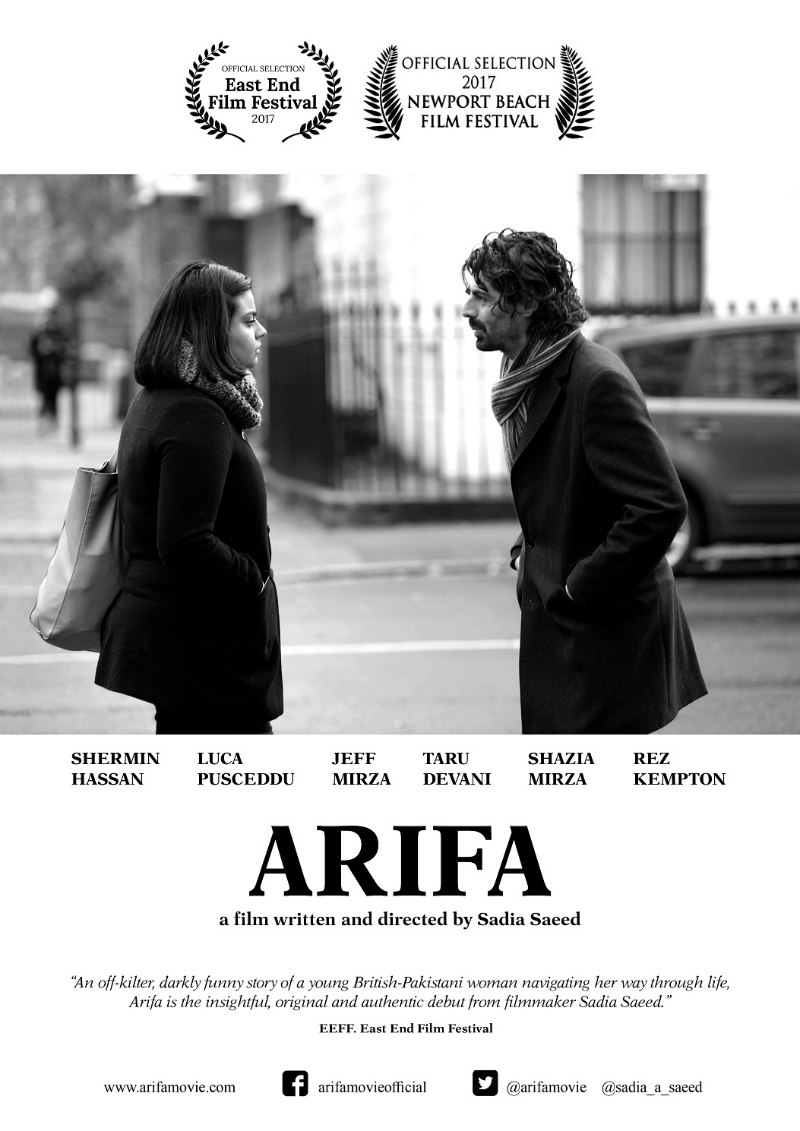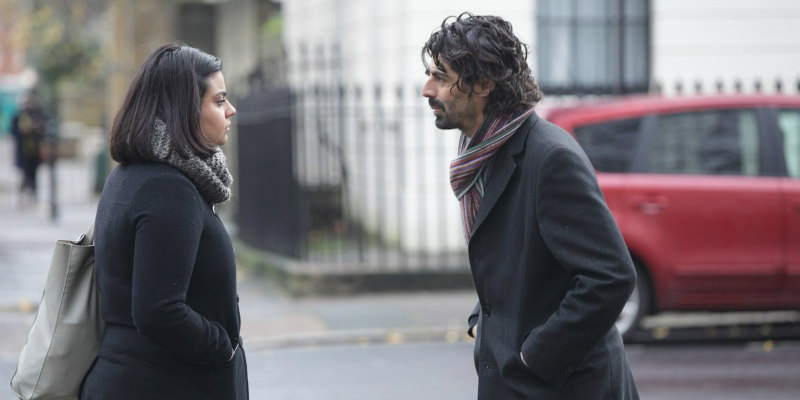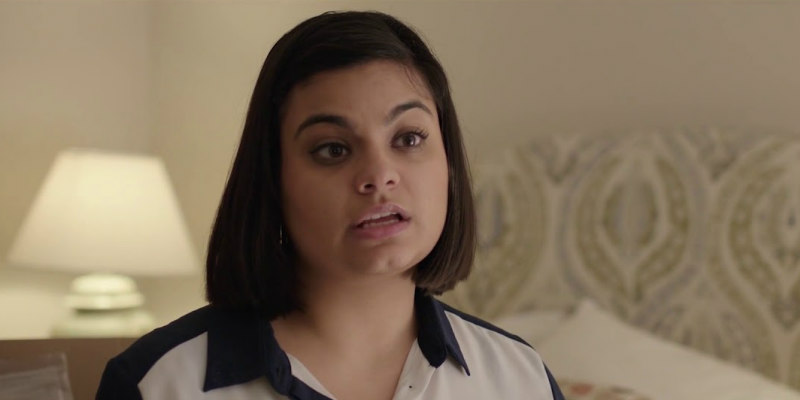
Arifa reaches a crisis in her life when the escalation of her feelings for intriguing but capricious professional 'gamer' Riccardo, coincides with the reappearance of her estranged black-market tobacco peddling father.
Review by Musanna Ahmed
Directed by: Sadia Saeed
Starring: Shermin Hassan, Luca Pusceddu, Jeff Mirza, Taru Devani, Shazia Mirza, Rez Kempton

This straight-faced dramedy starts off in a weird, ironic way with its lead character Arifa (Shermin Hassan) staring apathetically at a piano player as he delivers a beautiful performance to the small crowd, which includes her boyfriend, who’s moved to tears.
I felt like she was a surrogate for those who are detached from the power of classical music, those who aren't particularly moved by such music. Maybe my reading of the scene indicates that I'm part of that crowd too.


The juxtaposition of her close-up and the reactions of those around her sets the tone for the off-kilter quality of Arifa, which you either buy into in the first act or you won't be on board. For me, though, Arifa’s neutral face was a harbinger of things to come, as my face rested the same way all throughout the film, for better or worse.
She breaks up with her boyfriend almost immediately after, and we learn in the same conversation that their relationship has been entirely sexless. Following the swift split, she dryly tells her counsellor Shabana (Shazia Mirza) that she's been reading up on serial killers. Shabana responds that she should stop focusing on men.


This becomes impossible when she’s approached at a café by a video game-playing professional called Riccardo (Luca Pusceddu), who's on his way back from Europe’s biggest gaming expo, EGX, and takes a liking to Arifa. This happens around the same time her tobacco-peddling father Hameed (Jeff Mirza) re-enters her life, both relationships throwing her life for a loop.
Characters speak like they’re in a Todd Solondz movie but with the edginess smoothed out, abnormally pausing between their deadpan deliveries but never making you feel uncomfortable. However, watching Arifa did sometimes make me feel things unconnected to the screen, as my focus drifted in and out too frequently. Things spiral down for Arifa - and also rise up - and I felt bad for her by default, thanks to a lachrymose piano score and Hassan’s anxious performance, but I’d be lying if I said I was truly attached to Arifa’s story.


For unwarranted reasons, Brie Larson’s comments on the critical response to A Wrinkle In Time were met with controversy. She said, "I do not need a 70-year-old white dude to tell me what didn’t work for him about A Wrinkle in Time. It wasn’t made for him. I want to know what it meant to women of colour, to biracial women, to teen women of colour, to teens that are biracial."
From my perspective, her comments are totally fair, and I feel that they apply to Arifa too for a similar reason. This tale of a British-Pakistani woman is written and directed by Sadia Saeed, a Pakistani woman, and it’ll be more interesting to read responses to Arifa from the relevant demographic than writers outside of it, including myself. I’m not entirely sure if I liked Arifa or not, given my indifferent viewing experience but, as Brie Larson would tell me, it wasn’t made for me.

Arifa is in UK cinemas June 28th.
"While Peter Strickland continues to channel the spirit of '70s Euro horror, In Fabric is distinctly British in its humour."— 𝕋𝕙𝕖𝕄𝕠𝕧𝕚𝕖𝕎𝕒𝕗𝕗𝕝𝕖𝕣.𝕔𝕠𝕞 🎬 (@themoviewaffler) June 25, 2019
IN FABRIC is in UK/ROI cinemas Friday.
Read @hilliseric's reviewhttps://t.co/oMi2ZU0QXN pic.twitter.com/O8X81GR8Vb

